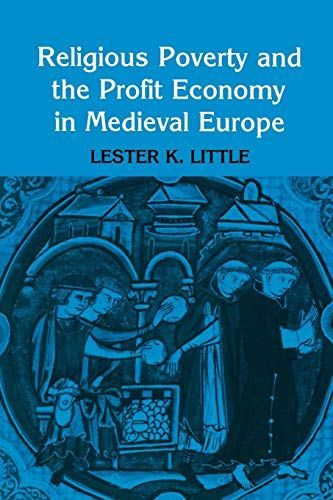
Religious Poverty and the Profit Economy in Medieval Europe
In this stimulating and important book Lester Little advances the original thesis that, paradoxically, it was the leading practitioners of voluntary poverty, Franciscan and Dominican friars, who finally formulated a Christian ethic which justified the activities of merchants, moneylenders, and other urban professionals, and created a Christian spirituality suitable for townsmen. Little has synthesized a vast body of specialized literature in Italian, German, French, and English to write an interpretive essay which provides a new perspective on the interaction between economic and social forces and the religious movements advocating the apostolic ideal of voluntary poverty...Little's book is a major contribution, not only to the history of the religious movement of voluntary poverty, but also to the interdisciplinary study of the middle ages. --Journal of Social History